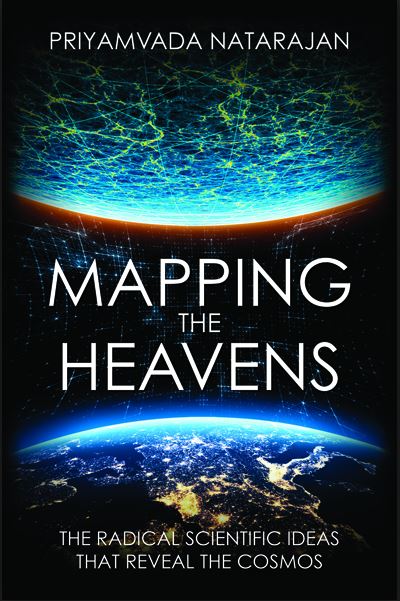Podcast: Mapping the Heavens
-
-
slice.mit.edu
Filed Under
Recommended
 In her new book Mapping the Heavens: The Radical Scientific Ideas That Reveal the Cosmos, Priyamvada Natarajan ’91, SM ’11 tells the stories of Albert Einstein’s troubles with gravity, an expanding universe, and dark matter. Arguably the most brilliant man of the century, Einstein was repeatedly proven wrong by his contemporaries and struggled to align his theories with new advances in observational physics.
In her new book Mapping the Heavens: The Radical Scientific Ideas That Reveal the Cosmos, Priyamvada Natarajan ’91, SM ’11 tells the stories of Albert Einstein’s troubles with gravity, an expanding universe, and dark matter. Arguably the most brilliant man of the century, Einstein was repeatedly proven wrong by his contemporaries and struggled to align his theories with new advances in observational physics.For Natarajan, a professor of physics at Yale University, Einstein is just one of a cast of characters in 20th century astronomy and cosmology whose struggles are at times amusing and at other times most inspiring.
(Read the episode transcript.)

“If you’re living at this moment in time, we are so fortunate that the pace of discovery is so rapid, it’s reshaping our view of the universe,” says Natarajan. “Pretty much every decade there’s been a dramatic change. It seemed to be that this was a moment to sit back and think a little bit about how dramatic these changes have been and where they leave us.”
Detailing the advances of each of the past several decades, Natarajan asks the big questions about the origins of matter and energy and seeks answers from her contemporaries in the field. Natarajan’s book is also a chronicle of the changing nature of academia in the past century. The introduction of big science to her field brought about scientific collaborations involving hundreds or thousands of like minds.
“What is fascinating in the last 100 years in cosmology is the interplay between ideas and instruments,” she says. “The power that you get out of technology that has enabled us to see better, measure, and capture better. In a way astronomy is the original big data science. The role that technology has played in this is remarkable. If you look at the open problems today, for example dark matter and dark energy, at the moment the impetus for both of them has come from data. They weren’t theoretically predicted to be there.”
Listen to the podcast above or on the Alumni Association’s SoundCloud page. And don’t forget to subscribe on iTunes and rate the podcast and leave a review. Tweet your thoughts on this episode to @mit_alumni.







